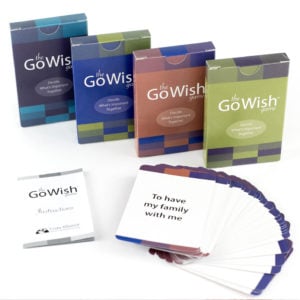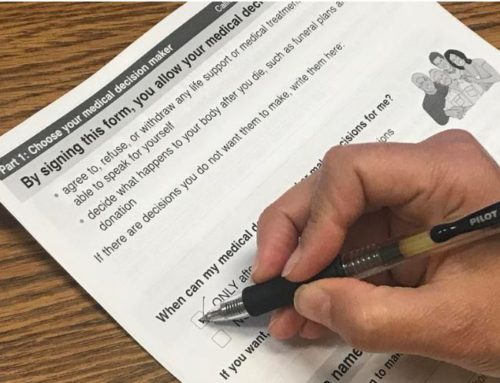
We know how tough end-of-life discussions are, so we found and tested a wonderful and fun sorting card game to help you easily start a comfortable conversation and choose your own way – in life, and at the end of life.
GoWish cards help you find words to talk about what is important if you were to be living a life that may be shortened by serious illness. Playing the game with your relatives or best friends can help you learn how you can best comfort your loved ones when they need you most. The cards describe how people want to be treated, who they want near them, and what matters to them.
Ways to Play GoWish
GoWish can be played by one, two or more people. Each deck has 36 cards. Thirty-five of the cards describe things that people often say are important when they are very sick or dying. One card is a “wild card” which can stand for something you want that isn’t on any of the other cards.
To play the game (in the ‘solitaire’ mode) the individual sorts the cards and ranks priorities about what’s important to them, and then discusses or explains to a friend or family member why they made the sort the way they did. The instruction sheet for the game gives other ways to play it in pairs or groups.
The point of the game is not to create a written list of “what I want,” but to stimulate conversations about what is important and why. Many people remark that when they play the game several times, the way they sort the cards changes a bit, but that this helps them refine their thinking about what their values are and how those values would apply in different situations.
Why Do GoWish Cards Work?
- They introduce new concepts, talking points & thought-provoking ideas
- They can be used in many different settings and at any age or circumstance
- They’re simple and non-threatening, with a familiar format and can even be fun
When Are GoWish Cards Used?
- Before the need arises, to prepare you and your loved ones for the unexpected
- In end-of-life trainings and seminars
- Prior to filling out an Advance Health Care Directive
- Upon diagnosis of life-threatening illnesses or after serious accidents



